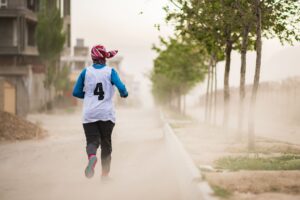KABUL (SW) – A month after the devastating earthquake in Paktika and Khost, the World Health Organization has said the affected communities still long for basic relief and rehabilitation services.
In a report, the WHO said further damage to the infrastructure by the aftershock on 18 July has been observed, homes made of mud have become more fragile and at greater risk of collapse. Some health facilities (Ziruk CHC, Giyan CHC in Paktika, Spera CHC in Khost) remain damaged and have not been rehabilitated.
It added the flash floods have damaged bridges and roads, which disrupted livelihoods and
response activities. The poor road conditions have increased the risk of road accidents and travel hours to reach to the affected area.
It reiterated urgent response was needed to the upsurge of f acute water diarrhea cases in the
affected areas in Paktika and Khost provinces including provision of safe water supply to mitigate
the further spread among the vulnerable populations residing in deteriorated living conditions
and being impacted by the floods and heavy rain.
It’s been a month since a 5.9 magnitude earthquake struck the southeastern region of Afghanistan on 22 June 2022, devastating Paktika and Khost provinces. A 4.2 magnitude aftershock hit Giyan district in Paktika province two days later (24 June 2022).
Another aftershock with a magnitude of 5.1 hit the southeastern provinces of Afghanistan at 16:52 local time on 18 July 2022, struck Khost and Paktika provinces. The Ministry of Public Health (MoPH) announced that 32 people were injured in Paktika province (18 injuries in Ziruk, 13 in Giyan, and one in Barmal) and eight were injured in Spera in Khost province, and more than 40 homes were heavily damaged in Khost.
In the past few weeks, the incidences of flash flooding have increased due to the heavy rains in the southeast region including Paktika and Khost provinces.
ENDS






